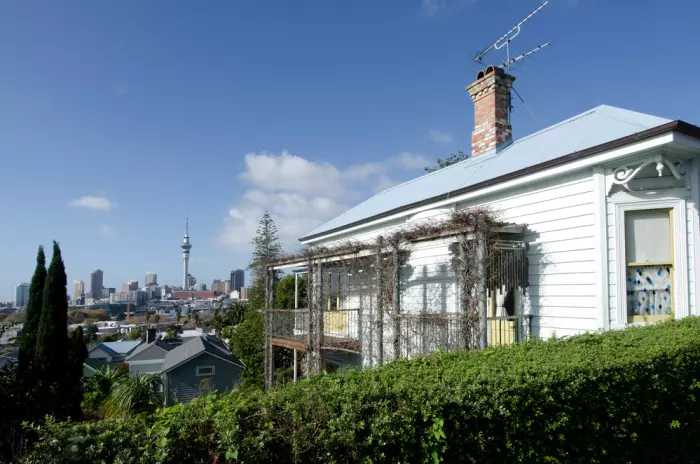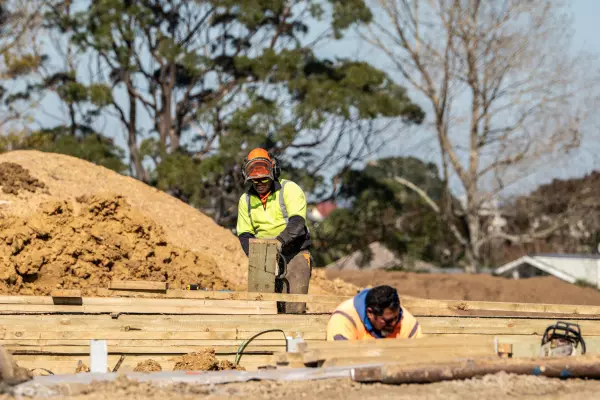Only 40% of Kiwis between the ages of 18 and 39 own their own home and the Financial Services Council says it’s getting even harder for them to get onto the property ladder.
In its latest survey into financial services trends, the FSC notes that 60%, or 916,000 of the 1.5 million New Zealanders across that age group, are renters.
This is in line with December's report by the Building Research Association and Stats NZ which suggests home ownership in NZ is at its lowest level since 1951.
That report, Housing in Aotearoa, said while lower interest rates and access to KiwiSaver had opened the door to younger owners, those same interest rates had priced the market outside the buying reach of aspirational first home purchasers.
Last year alone that ‘foot on the ladder’ jumped by $150,000 across NZ as a whole.
According to data from Corelogic, the median price paid by first-home buyers in June in NZ was $685,275 compared to $535,000 12 months prior.
The challenge, as always, is scraping together the deposit.
While banks have been content to lend on a 10% deposit to first-home buyers, the move last week by the Reserve Bank to cut the number of low deposit owner occupier/mortgages in half could hit those buyers the hardest.
Corelogic senior property economist Kelvin Davidson said the extra 10% could translate to an additional $50,000 in the Christchurch market, about $81,000 extra in Wellington and $90,000 in Auckland – as a median.
That’s a big ask for most younger Kiwi households.
According to the FSC survey, of the 2,035 respondents aged between 18 and 39, only about a third earned a household income of more than $100,000. The biggest band, 36.1%, were in the $50,000 to $100,000 range while 30.4% earned $50,000 or less.
Appetite to own
Still, of those classed in what the FSC refers to as ‘generation renters’, 83% still believe owning a home is a ticket to long term financial security.
Reflecting this, more than half of respondents were actively working towards buying their own home within five years, the FSC report notes.
FSC chief executive Richard Klipin said the flipside of those ownership challenges is that younger Kiwis are looking at other ways to invest their money. In particular, there was a strong move towards alternative investment options.
“They’re building their financial capability with micro-investing platforms and adopting new financial technologies that weren’t around during their parents’ generation.”
Bearing that out, two-thirds of respondents have an investment portfolio of between $50,000 to $200,000, including KiwiSaver savings.
About 54% of those in the 18-39 age category either used or planned to use micro-investing platforms such as Sharesies or Hatch, compared to 28.6% of those older than 40.
The under 39s were far more likely to use digital currency platforms, at 47%, compared to 21% of those over 40.
The vast majority of respondents (82%) believe the dream of home ownership is now unattainable for the average New Zealander.
Across all age groups, 90% believe younger Kiwis are being locked out of the property market, on the back of increasing house prices, inability to save for a deposit and availability of property in areas where people want to live.
Bank of mum and dad
Klipin said younger Kiwis were also seeking support from external sources to achieve their property goals.
That includes applying for government grants, asking for financial assistance from parents and taking out personal loans.
But these factors are also impacting the overall wellbeing of generation renters.
“Their physical and mental health and their relationships with family and friends are more likely to be affected by financial issues when compared with older generations.”
Ryan Bessemer, chief executive of Trustees Executors, said rising debt levels were also a concern, with record levels of debt on the back of historically low interest rates.
Bessemer said as an asset class, property should be accessible through managed investments as well as direct, so he expects to see growth in the number of investment opportunities to help Kiwis’ access property in their portfolios.
While the financial services industry “can solve some of the issues for generation rent” some can only be addressed by the government, he said.














